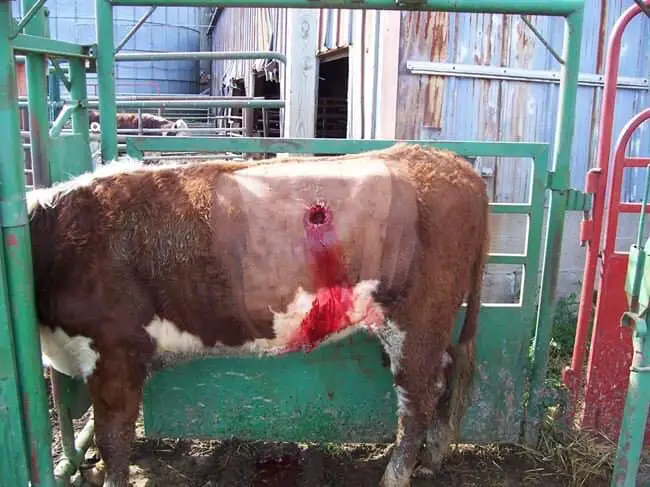Introduction:
In the heart of modern agriculture lies a controversial practice that has sparked debates worldwide – factory farming. While this method of mass-producing livestock has significantly increased food production to meet the demands of a growing population, it comes with a dark side: animal cruelty. Behind the closed doors of these industrialized facilities, animals endure immense suffering, stripped of their most basic needs and rights.
Living Conditions: A Life of Misery:
In factory farms, animals are treated as commodities rather than living beings with emotions and basic needs. Confined to overcrowded and unsanitary living spaces, they are deprived of the ability to express natural behaviors such as grazing, rooting, or even turning around. Pigs, chickens, and cows are often packed into small cages or pens, unable to move freely or socialize with others of their kind.
For instance, sows (female pigs) are kept in gestation crates – metal enclosures barely larger than their bodies – where they spend most of their lives unable to even turn around. Chickens raised for eggs or meat are crammed into tiny wire cages, often suffering from injuries and deformities due to the lack of space. Calves raised for veal are confined to small crates, deprived of their mother's milk and companionship.
Physical and Psychological Trauma:
The harsh conditions of factory farms inflict both physical and psychological trauma on animals. Many undergo painful procedures like debeaking, tail docking, and castration without anesthesia to prevent injuries and aggressive behavior caused by stress and overcrowding. These practices not only cause immediate pain but also lead to chronic discomfort and health issues throughout their lives.
Moreover, the constant exposure to filth and ammonia from accumulated waste can result in respiratory problems, infections, and skin lesions. Animals often develop abnormal behaviors such as repetitive movements or self-mutilation as a coping mechanism for stress and boredom. The lack of mental stimulation and social interaction takes a toll on their psychological well-being, leading to anxiety, depression, and even psychosis.
Transportation and Slaughter:
The suffering doesn't end at the farm gates. Animals raised in factory farms endure additional stress and cruelty during transportation and slaughter. Packed into crowded trucks for long distances without food, water, or protection from extreme weather conditions, Factory farm animal cruelty, dehydration, and injuries during transit. Many die before reaching their final destination, while others arrive at slaughterhouses in a weakened and distressed state.
At the slaughterhouse, animals are subjected to inhumane handling and killing methods. Cows, pigs, and chickens are often stunned with electric prods or CO2 gas before being slaughtered, but ineffective stunning can result in conscious animals experiencing the agony of being dismembered or scalded alive. The fast-paced nature of the slaughter process leads to frequent mistakes and instances of animals being processed while still conscious.
The Environmental Impact:
Aside from the ethical concerns, factory farming also takes a toll on the environment. The concentration of thousands of animals in confined spaces produces massive amounts of waste, polluting air, soil, and waterways with harmful chemicals and pathogens. Deforestation and habitat destruction to make way for feed crops and livestock operations further contribute to biodiversity loss and climate change.
The Call for Change:
Despite these grim realities, the plight of animals in factory farms often goes unnoticed by consumers who are disconnected from the sources of their food. However, there is a growing movement advocating for the rights and welfare of farm animals. Animal welfare organizations, consumer groups, and ethical farmers are working to raise awareness about the cruelty of factory farming and promote sustainable alternatives such as organic, free-range, and pasture-raised agriculture.
Consumers also have the power to drive change through their purchasing choices. By opting for ethically sourced and humanely raised products, they can support farmers who prioritize animal welfare and sustainable practices. Additionally, advocating for stronger animal welfare laws and regulations can help hold factory farms accountable for their treatment of animals and encourage the adoption of more humane standards throughout the industry.
Conclusion:
factory farming represents a disturbing reality where animals are treated as mere commodities, subjected to unimaginable suffering for the sake of mass production. Addressing the cruelty of factory farming requires a collective effort from consumers, farmers, policymakers, and industry stakeholders to transition towards more humane and sustainable agricultural practices. Only by recognizing and confronting the hidden cost of cheap meat and dairy products can we build a food system that respects the dignity and well-being of all living creatures.







